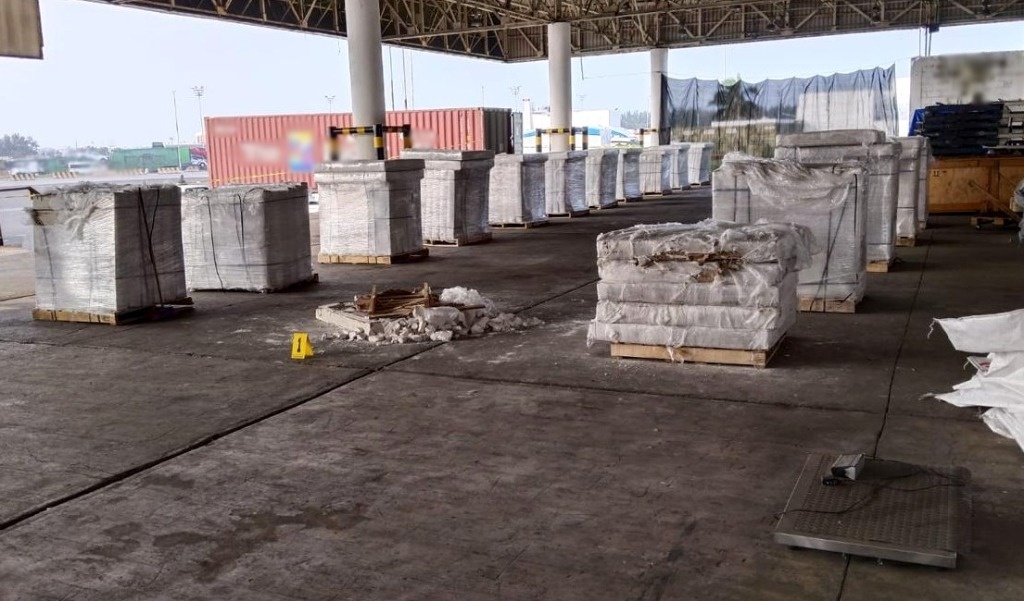The Federal Court of Criminal Cassation confirmed the sentence of six years in prison and perpetual disqualification from holding public office against the former president Cristina Kirchner, for having directed public works tenders in the province of Santa Cruz for the benefit of the businessman Lazaro Baez.
This was resolved this Wednesday by Chamber IV of the Chamber of Cassation, made up of judges Gustavo Hornos, Mariano Borinsky y Diego Barroetaveña. The former president’s defense presented a brief in which she reported that she will appeal the ruling before the Supreme Court of Justice, the last possible instance. She was not present and neither was her defense, who announced that she would continue the reading remotely.
The chamberlains rejected all appeals, both from the prosecution and the defense, which will confirm the same sentences and acquittals that the judges imposed. Jorge Gorini, Andres Basso and Rodrigo Gimenez Uriburuof the Federal Oral Court No. 2, in its ruling of December 6, 2022. The former president was convicted as “criminally responsible author of the crime of fraudulent administration to the detriment of public administration.” The Cassation judges acquitted her, by majority, for the crime of illicit association.
For Judge Hornos, Cristina Kirchner should also have been convicted of this crime because, according to him, she led a network of structural corruption in public road works. Judge Basso had maintained the same thing in the oral court ruling, who was also in the minority on this point.
Even with the conviction confirmed by the Court of Cassation, the former president will not go to prison, since the sentence becomes final and is executed only when all judicial review instances are exhausted. This is provided by the new Federal Criminal Procedure Code, partially in force. This implies that the penalty will only be applied when the Supreme Court of Justice rejects the former president’s last appeal, which could take years.
Hornos, president of the court, who was the one who read the sentence, also reported that a confiscation of 84,835,227,378.04 pesos will be applied, which will be executed once the ruling is final, after updating the amount.
Cristina Kirchner does not have jurisdiction to prevent her arrest, but she is over 70 years old. Therefore, his sentence is final, he can ask to serve his sentence at home. If the clean record law prospers in Congress, with this Cassation ruling she will not be able to be a candidate.
The Court of Cassation also ratified the convictions of other former officials and of Báez, the businessman who owns Austral Constructionswho was a business partner of the Kirchner family. Báez had previously been convicted of illicit enrichment and illegal possession of a firearm. He is serving house arrest in Santa Cruz.
Of all the accused, the only one who was in the Comodoro Py 2002 courts today and witnessed the reading of the sentence was Abel Fatala, one of the acquitted. Fatala was José López’s second in the Public Works Secretariat. The Cassation also ratified the acquittals of the former Minister of Federal Planning Julio De Vido and Héctor Garro. Santiago Kirchner, cousin of the former president, was acquitted.
The businessman who owns Austral Construcciones, Lázaro Báez, was sentenced to six years in prison as a necessary participant in the crime of fraudulent administration to the detriment of the State. The former Secretary of Public Works Jose Lopez He was also sentenced to six years in prison. He had previously been convicted of illicit enrichment and illegal possession of a firearm. The former head of the National Highway Directorate (DNV) Nelson Periotti He received a sentence of six years in prison for being considered the criminally responsible perpetrator of the crime of fraudulent administration.
In addition, the former heads of the Provincial Highway Agency of Santa Cruz Mauricio Collareda, Raúl Daruich, Raúl Pavesi, José Raúl Santibañez and Juan Carlos Villafañe were sentenced.
Cristina Kirchnerwho was not present at the hearing, sent a message from Moreno, where he attended a meeting with women. “When you are a woman, they make things more difficult for you. Since they can’t beat me up, they do what they did today in Comodoro Py,” Cristina said today in reference to the ruling of the Court of Cassation.
The first vote was that of Hornos, who validated the convictions for defrauding the public administration and also considered the figure of illicit association applicable to the case (as had been requested by the Public Prosecutor’s Office). When addressing the grievances of the defenses about a supposed “judicial war” or “lawfare”, Hornos indicated that “lawfare appears only as a new conspiracy theory, and whose destiny seems to be none other than to become an alibi to evade, before the democratic judicial powers and before the entire society, accountability for the commission of corruption crimes.”
Borinsky highlighted the subjective evidence that demonstrated the knowledge and willingness to carry out the maneuver for which Cristina Kirchner was convicted of the crime. Among them, the alerts received by the legal services at the time of signing Decree 54/2009 – ignored by the former president -, the complaints of cartelization of public works in Santa Cruz made at the time of the events, the proven commercial links with Báez and the WhatsApp messages found on José Francisco López’s cell phone that gave an account of the collusion in the final stretch of the maneuver to provide impunity for the illicit act investigated.
Barroetaveña, who made the last vote, when referring to the prison sentences imposed, maintained that the unjust content of the maneuver discovered far exceeds the maximum of the penal scale. Faced with this, he pointed out that “it is painful to confirm a conviction for having so conclusively proven a fraudulent act of the dimensions of which this process was the subject when the criminal perpetrators turn out to be officials of such high hierarchy up to the person who was the highest authority of the Executive Branch. ”.
According to the criteria of

